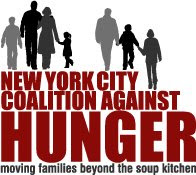The study paints a picture of low-income workers who are anxious about an economic future and their growing vulnerability to economic fluctuations. Many have been forced to borrow money or sell possessions in order to afford food and fully half of respondents claimed that they could only stay financially afloat for a month if they lost their current job.
Low-income workers included in the study called upon the government to make affordable health insurance, cheaper gas, and financial assistance for higher education and public works jobs a top priority. Respondents also noted several government programs that have had a substantial impact on their lives, including the Earned Income Tax Credit and children’s health insurance programs funded through Medicaid or the State Children’s Health Insurance Program.
The combined concerns of low-income workers could soon become priorities for middle-income workers as well as declining economic conditions begin to penetrate higher up the economic ladder. Beth Shulman, a scholar at the Future of Work Project notes the great potential power of these grievances to spark widespread political action. “I don’t think we want to live in a country where people are working and doing what they are supposed to do but yet they can’t get the basics,” said Shulman.

No comments:
Post a Comment